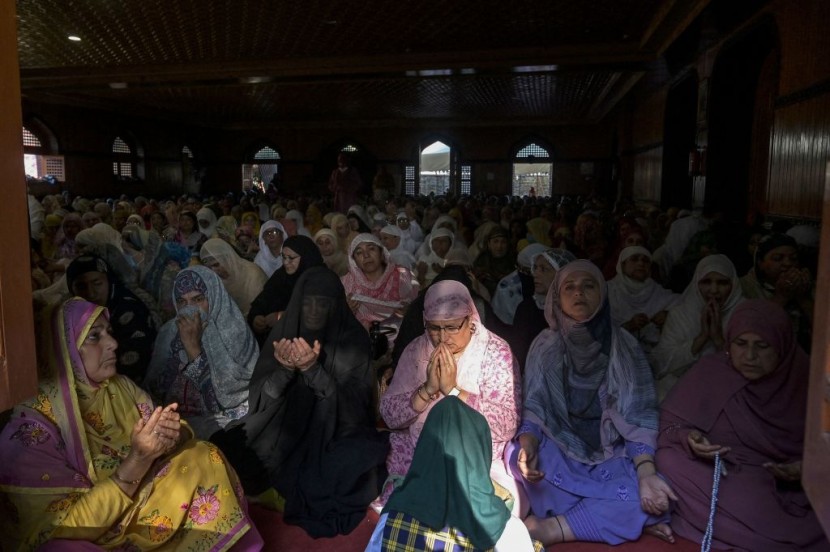
(Photo: by TAUSEEF MUSTAFA/AFP via Getty Images) Kashmiri Muslim devotees offer prayers at the shrine of Sufi saint Naqashband Sahib to mark his birth anniversary in Srinagar on September 20, 2023.
In a widely disapproved viral TikTok video, a woman who did an Islamic prayer before eating pork was given a two-year prison sentence and a hefty fine by an Indonesian court.
At a court on Tuesday in Palembang, South Sumatra, Lina Mukherjee, 33, was adjudged guilty of "spreading information intended to incite hatred against religious individuals and specific groups," according to The South China Morning Post.
It happened after a local complained about Mukherjee in March for the viral video in which she said the Muslim blessing "in the name of God" before eating crispy hog skin.
The predominant religion in Indonesia is Islam, which forbids the consumption of pork.
Mukherjee, who self-identifies as a Muslim, was criticized for her conduct by conservative organizations, including the Indonesian Ulema Council, the country's main Muslim ecclesiastical authority, which ruled that the film was blasphemous.
Additionally, she was given a 250 million rupiah (US$16,200) fine that, if unpaid, would result in a three-month jail sentence extension.
This incident is the most recent in a line of blasphemy prosecutions around the nation.
Other Blasphemy Cases
Due to a bar chain's promotion offering free booze to customers called Mohammed last year, Indonesian authorities detained six people on blasphemy accusations.
Rights organizations have long fought against legislation that they claim are regularly used as a weapon against religious minorities.
Basuki Tjahaja Purnama, also known as Ahok, the former governor of Jakarta, was imprisoned for nearly two years in 2017 on contentious blasphemy accusations.
Christian politician Purnama was imprisoned for remarks he made while running for re-election that were perceived as derogatory to Islam.
Her imprisonment has received mixed reviews on Indonesian social media sites thus far, with some applauding the judge and others criticizing her conduct as blasphemous, as reported by BBC News.
Others have criticized Ms. Lutfiawati's prison term, pointing out that the sentences handed out in cases of corruption are frequently far lighter.
Blasphemy Laws in Indonesia
The blasphemy laws in Indonesia have long been criticized by rights organizations and activists who claim that they are regularly used as a weapon against religious minorities.
The government of Indonesia has justified its blasphemy law as being important to uphold social harmony and religious order in the multicultural country.
Additionally, it has refused requests to remove or modify the law from foreign organizations including the United Nations Human Rights Council.
The government has said that it respects all major religions and that it does not accept extremism or any other type of intolerance. Additionally, it has stated that when resolving blasphemy cases, it follows the rule of law and due process.
The government has been criticized for failing to safeguard the rights and well-being of those who have been accused of blasphemy and for caving in to pressure from conservative and radical organizations that want to impose their interpretation of Islam on others.
Related article: French School Abaya Ban Sparks Debate Over Religious Freedom








